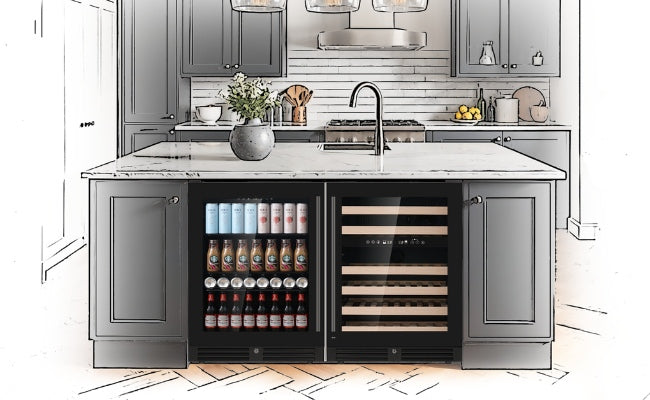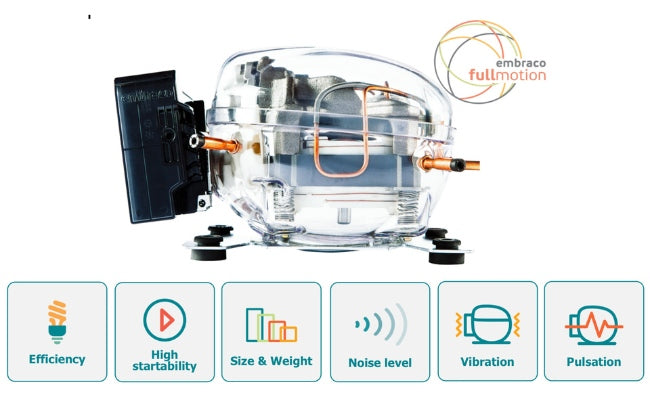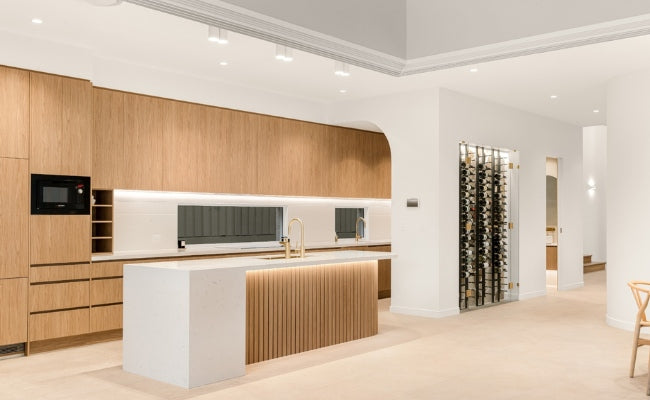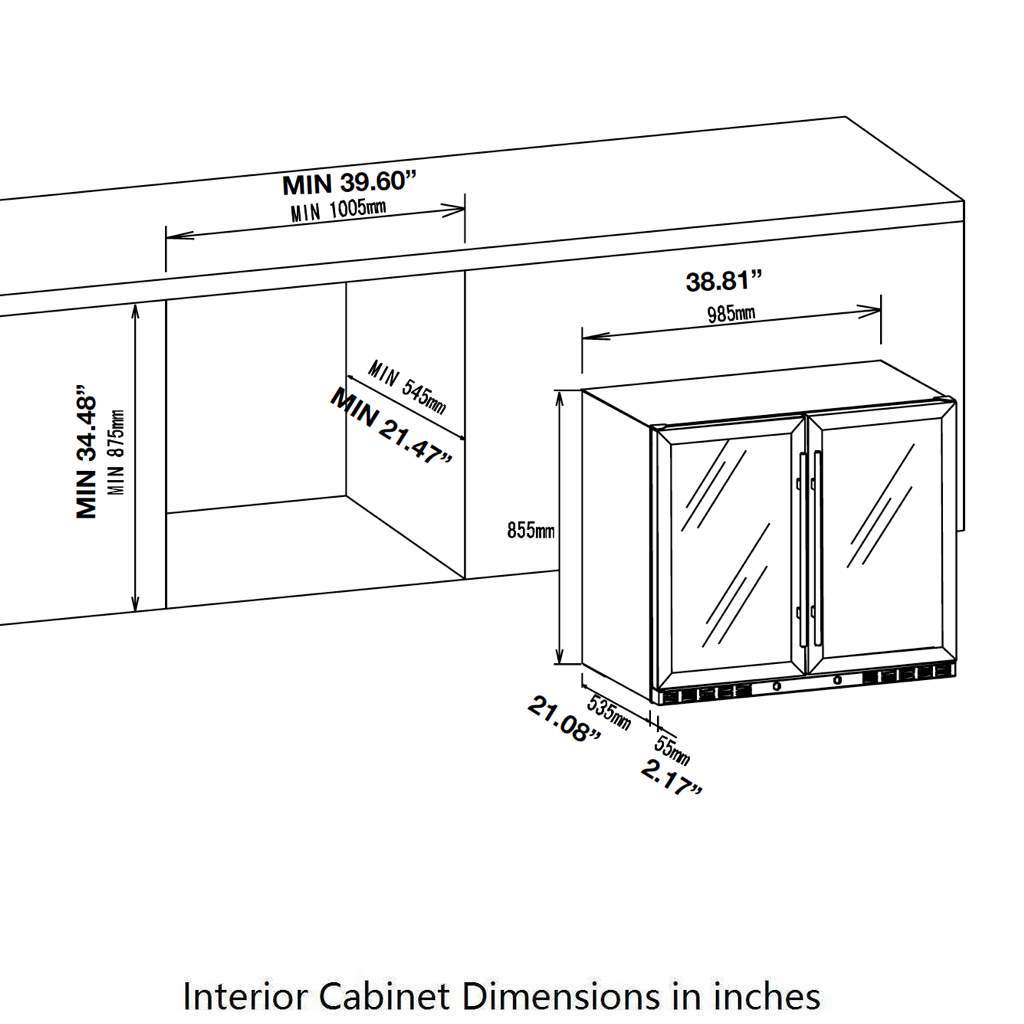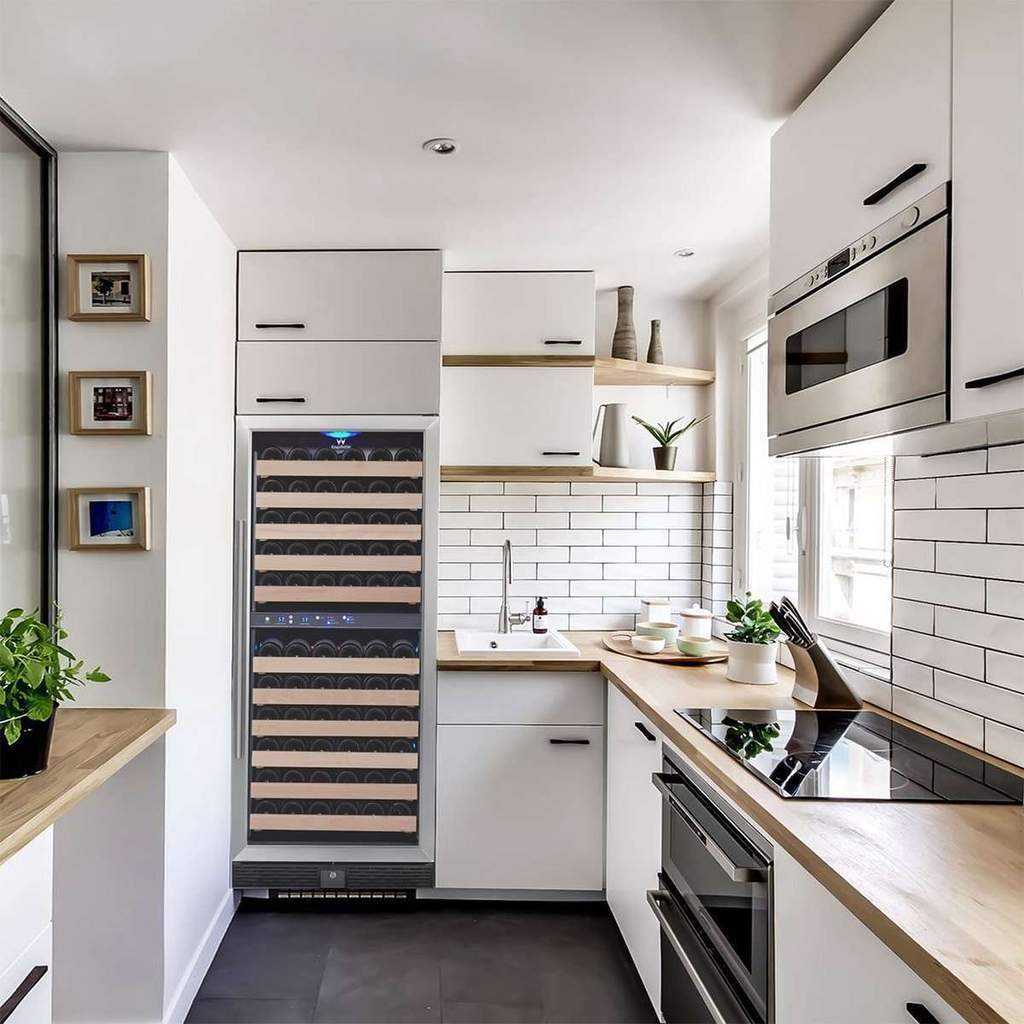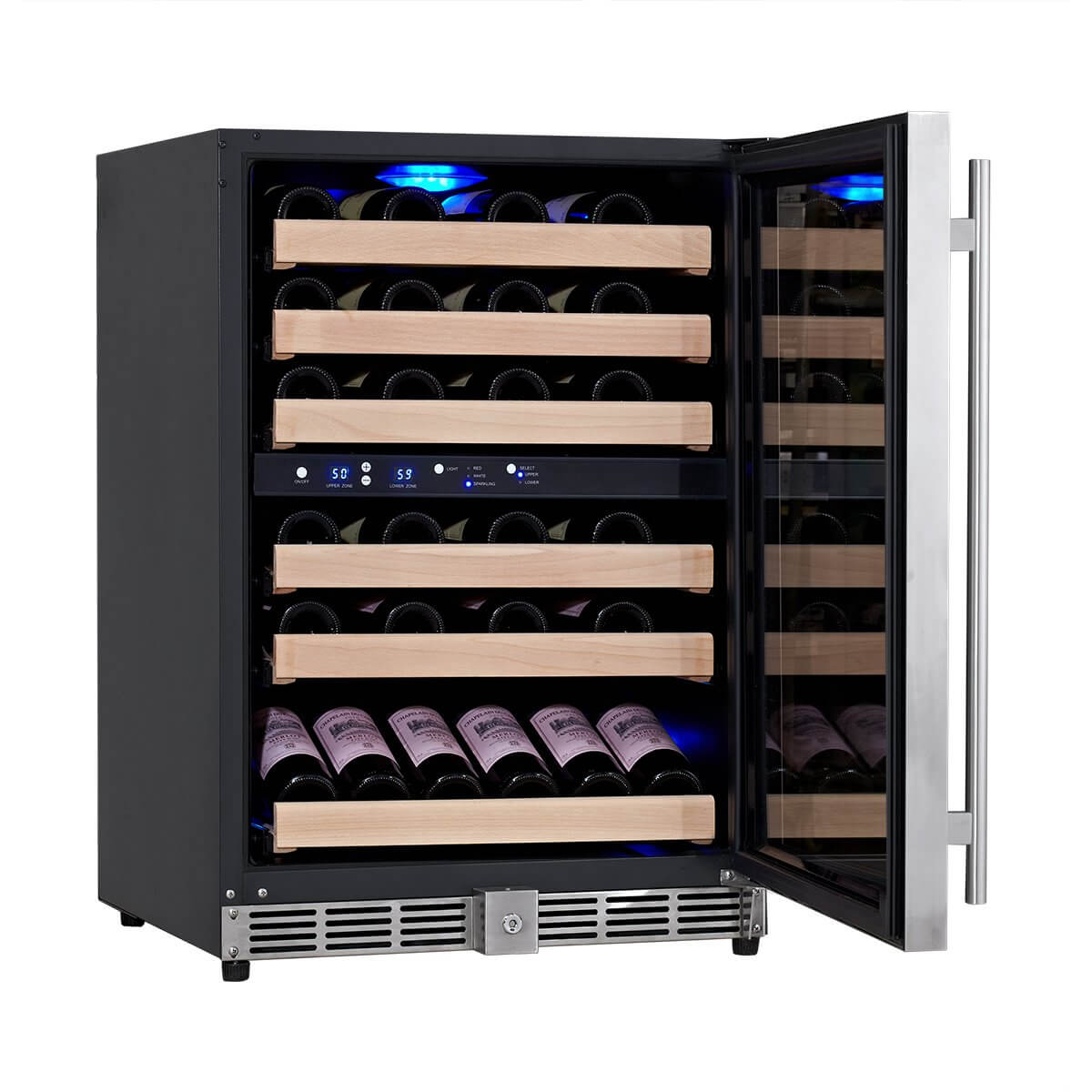
What’s the Difference Between Thermoelectric & Compressor Wine Coolers?
Are you planning on purchasing a wine cooler? You may find yourself wondering which type of wine cooler is better—thermoelectric vs. compressor? Each type of wine cooler will protect your wine's integrity, but which one saves the most energy? Which one operates without vibrations?
Not sure whether a wine cooler without a compressor is better for you? We’ve done the legwork and put together a handy guide to the two different types of wine coolers on the market.
Thermoelectric vs. Compressor Wine Cooler: Which One Is Right for Me?
What is a thermoelectric wine cooler? Thermoelectric wine cooler parts include a Peltier plate, a heat pump, and a heat sink made of aluminum fins. Warm air is drawn from the wine cabinet and dispersed throughout the surrounding air. Dual-zone thermoelectric wine coolers can maintain two different temperature zones within the wine cabinet.
What are the main benefits of thermoelectric cooling?
- They’re energy-efficient. Thermoelectric wine coolers have less moving parts, requiring less energy to operate than compressor-powered units.
- They don’t vibrate. Vibrations are detrimental to the aging process of wine—a thermoelectric wine cooler can help preserve your investment.
- They’re quiet. If you’re interested in quiet wine cooler refrigerators, thermoelectric wine coolers don’t come with as many internal parts, allowing them to operate soundlessly.
A more straightforward design with less moving parts isn’t always beneficial. Here are the main drawbacks of thermoelectric cooling:
- They have limited capacities. Less moving parts translates to less power. Thermoelectric wine coolers are typically smaller than compressor wine fridges.
- They’re on all the time. You may end up using the same amount of energy. On the other hand, compressor wine fridges only turn on when necessary.
-
They’re not so great in the basement. The performance of a thermoelectric wine cooler falters significantly in warm environments or those that fluctuate in temperature.
If you have a growing wine collection or plan on storing your wines in the basement, a compressor wine cooler may be a better option. But how do compressor wine coolers work? They have the same cooling equipment as your household refrigerator, including a compressor, condenser coils, an evaporator, and a refrigerant.
What sets compressor wine coolers apart from their thermoelectric counterparts?
- They’re powerful. Compressor wine refrigerators have much more cooling capacity. They can reach lower temperatures and do so more efficiently.
- They can handle growing collections. The larger the cooling unit, the more likely it is to be powered by a compressor.
- They can adapt to inconsistent temperatures. It won’t matter where you store your wine collection—a compressor wine cooler remains stable regardless of fluctuating external temperatures.
-
They’re energy-efficient. Many compressors, including the Embraco inverter compressor, vary cooling capacity based on need, allowing you to save energy.
So, what are the drawbacks of a compressor wine cooler?
Find Top-Quality Thermoelectric and Compressor Wine Coolers at KingsBottle
Are you looking for a new wine fridge? Whether you’d prefer a whisper-quiet thermoelectric wine cooler or a powerful compressor-powered fridge, KingsBottle has the right model that’ll fit both your aesthetic and storage needs. Get in touch with a member of our team today to learn more.


